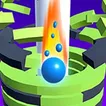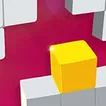




































































































































































































Physics Games: Engaging Minds Through Interactive Challenges
Physics games have emerged as a fascinating genre, blending the thrill of gaming with the foundational elements of physics. These interactive challenges captivate players by incorporating real-world physics principles such as gravity, motion, and force into their core gameplay mechanics. As players navigate through levels, they encounter puzzles and obstacles that can only be overcome by applying their understanding of these concepts, making the experience both entertaining and educational.
The appeal of physics games lies in their ability to transform abstract scientific ideas into tangible problems that require logical thinking and strategy. They offer a hands-on approach to learning that can supplement traditional education, appealing to a diverse audience that ranges from casual gamers looking for a fun way to pass the time, to students and enthusiasts eager to deepen their understanding of physics in an engaging format.
By presenting complex theories in an interactive and approachable manner, physics games encourage players to experiment with different solutions, fostering a deeper appreciation for the science that governs our universe. The challenges posed by these games often mimic real-life scenarios, allowing players to visualize the outcomes of their actions in a controlled environment. This experiential learning process not only reinforces theoretical knowledge but also sharpens problem-solving skills that are valuable both inside and outside the realm of physics.
As the digital world continues to evolve, physics games stand out as a unique and powerful tool for engaging minds. They offer a compelling blend of fun and learning, proving that the worlds of entertainment and education can indeed coexist harmoniously. Whether you’re a seasoned gamer or a curious learner, physics games provide an interactive platform that promises to challenge and delight in equal measure.
Discover the Thrill of Physics-Based Games
Physics-based games have surged in popularity, captivating players with their unique blend of entertainment and intellectual stimulation. These games stand out by making the principles of physics central to the gameplay, turning theoretical concepts into exciting challenges. Players are drawn to the genre for its ability to make learning physics intuitive and enjoyable, often without them even realizing they’re absorbing complex ideas.
The secret to the success of physics games lies in their diverse appeal. They offer something for everyone, from the casual player who enjoys the satisfaction of solving puzzles to the more serious gamer who relishes the application of physics in strategic planning. The interactive nature of these games means that players are actively engaged in the learning process, experimenting with variables like mass, velocity, and trajectory to achieve their goals.
This dynamic platform for learning allows players to immediately see the consequences of their actions, providing instant feedback that is both informative and gratifying. As players adjust their strategies and try new approaches, they gain a practical understanding of physics that can complement and enhance their academic or personal interest in the subject.
The thrill of physics games is not just in the challenge they present, but also in the way they encourage creative problem-solving and adaptability. By requiring players to think critically and apply knowledge in various scenarios, these games promote a deeper level of engagement with the subject matter. The result is a gaming experience that is as rewarding intellectually as it is enjoyable, making physics accessible and fascinating to a broad audience.
The Evolution and Educational Value of Physics Games
Physics games have undergone a remarkable transformation since their inception. Initially simple, flash-based puzzles designed to entertain have evolved into sophisticated simulations that mirror the complexities of real-world physics. This evolution reflects a broader trend in educational technology, where learning is increasingly interactive and integrated with play.
The educational value of these games is significant. By engaging with physics games, players can develop a more intuitive understanding of concepts such as energy conservation, projectile motion, and elasticity. These virtual playgrounds allow for experimentation without the constraints of a physical laboratory, making them an excellent supplement to traditional classroom instruction. They provide an alternative way to grasp challenging concepts, often leading to ‘aha’ moments as players witness the immediate impact of their actions on the game environment.
Moreover, physics games have the potential to democratize education, offering a low-cost, accessible resource for students around the world. They can serve as a bridge, connecting learners who might otherwise find physics daunting or inaccessible. The interactive nature of these games ensures that players of all ages and backgrounds can engage with scientific principles in a way that is tailored to their pace and style of learning.
As educational tools, physics games embody the principle of ‘learning by doing.’ They encourage exploration, trial and error, and persistence—qualities that are essential in scientific inquiry. By blending the rigor of physics with the intrinsic motivation of gameplay, these games not only educate but also inspire a new generation to appreciate and explore the wonders of science.
Physics Games in the Online Community and Their Future
Physics games have become more than just individual pastimes; they’ve fostered vibrant online communities where enthusiasts converge to share strategies, solutions, and celebrate collective triumphs. These forums and social networks have become integral to the gaming experience, providing a space for collaboration and competition that enhances the enjoyment and educational potential of physics games.
The future of physics games is poised to be shaped by technological advancements. Virtual reality, with its immersive capabilities, stands to revolutionize the genre by offering even more realistic simulations where players can interact with physics concepts in three-dimensional space. This could take the educational value to new heights, as the line between game and reality blurs, providing an unparalleled hands-on experience.
Moreover, the growing emphasis on STEM education has highlighted the importance of integrating fun, interactive methods into learning. Physics games are at the forefront of this movement, with the potential to become standard tools in educational curriculums. As they become more sophisticated, they could serve as virtual labs where students conduct experiments that may be too costly, dangerous, or impractical to perform in a school setting.
The interactivity and adaptability of physics games mean they can continually evolve with new scientific discoveries and teaching methods. This ensures that they remain relevant and effective as educational resources. As we look to the future, it’s clear that physics games will continue to play a significant role in both entertainment and education, captivating minds and fostering a deeper understanding of the physical world.